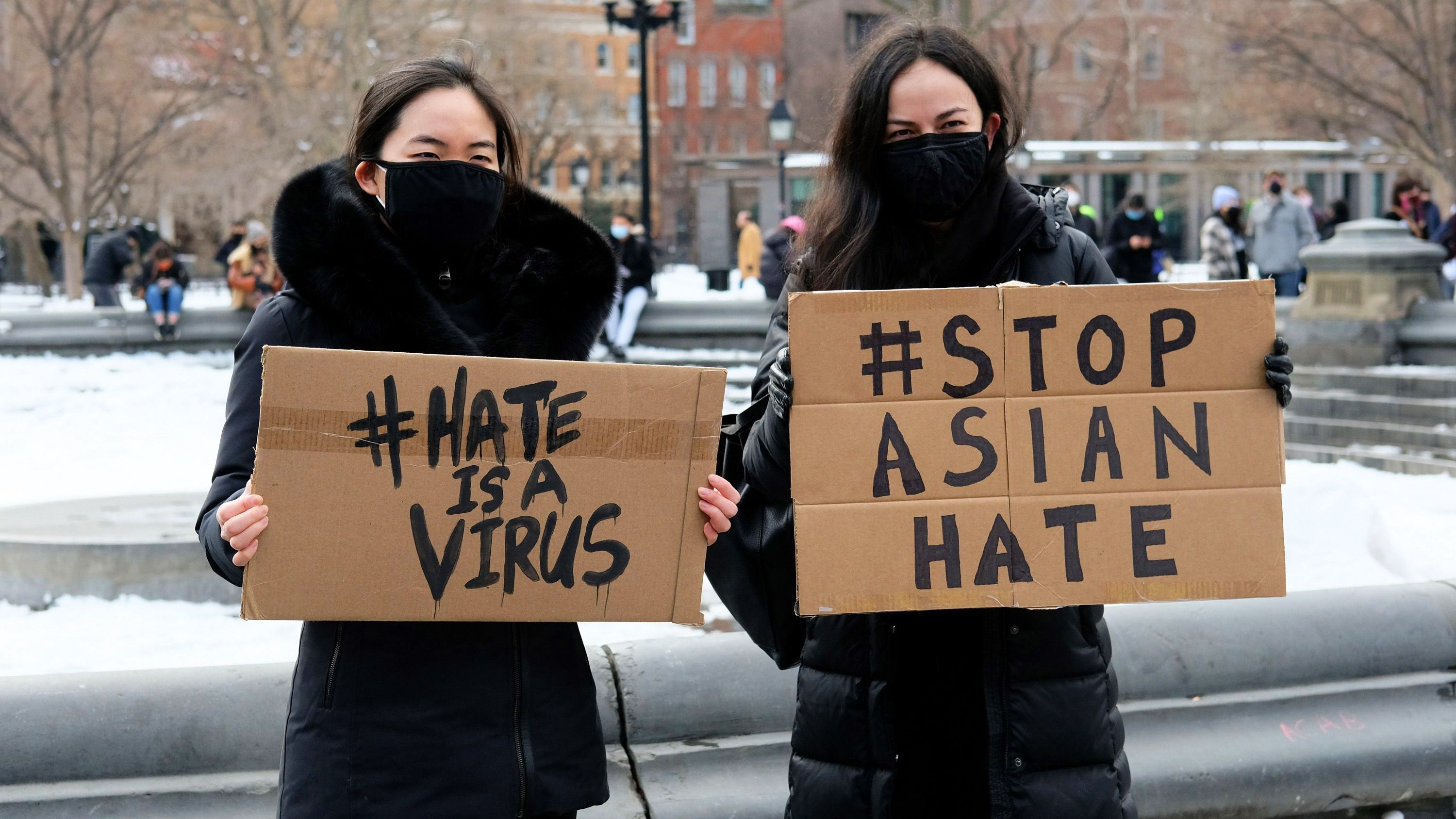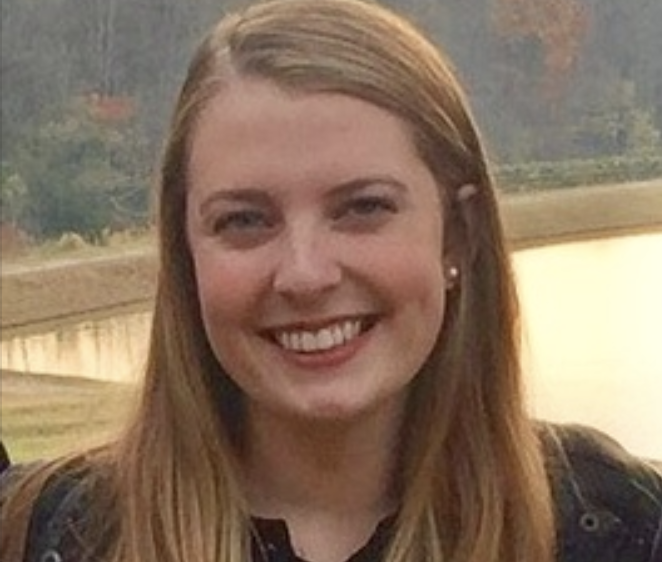AAPI-Supporting Organizations to Stand With and Donate To
Hate crimes against Asian-Americans have skyrocketed in the last year.


On the evening of March 16, a white man went on a shooting spree through three massage parlors in the Atlanta area and killed eight people, six of them Asian women. The crimes have further traumatized the Asian-American community, which has already been the target of a terrifying rise in hate crimes in the last year.
According to a new report from Stop AAPI (Asian American/Pacific Islander) Hate, between mid-March 2020 and the end of February 2021, the organization received almost 3,800 reports of hate incidents against the AAPI community, and largely Asian-American women, a number that they noted represents "only a fraction of the number of hate incidents that actually occur." In New York City alone, NYPD data showed an increase of at least 1,900 percent in anti-Asian hate crime incidents between 2019 and 2020.
The COVID-19 pandemic sparked completely unwarranted boycotts of Chinatown restaurants and shops around the globe, as well as the uptick in violent hate crimes against the Asian community. These racist fears were further stoked in the U.S. by the former president and his followers' continued use of racist epithets to describe the virus.
As the hate crimes have continued to rise, countless activists, celebrities, and politicians have spoken out against them. In one late January case, in which three people were assaulted by one man in the Chinatown neighborhood of Oakland, California, actors Daniel Dae Kim and Daniel Wu offered a combined $25,000 reward for information about the perpetrator. And upon taking office, President Joe Biden immediately announced that combating anti-Asian racism would be a core focus for his administration; in a primetime address earlier this month, he condemned the "un-American" rise in "vicious hate crimes against Asian Americans who've been attacked, harassed, blamed, and scapegoated."
This week's shootings highlight the violence faced not only by Asian Americans, but also by working-class immigrant women in massage parlors, which are often linked to the sex work community, according to grassroots Chinese massage parlor worker coalition Red Canary Song. In the face of these attacks, we cannot be silent. Here are several ways to support the AAPI community:
If you witness or are targeted in an anti-Asian hate crime, or if you have any further information about another ongoing investigation, report it immediately to your local police, then file a report with the FBI.
Get exclusive access to fashion and beauty trends, hot-off-the-press celebrity news, and more.
While the restaurant industry as a whole has struggled throughout the pandemic, Asian restaurants have been hit particularly hard and have been subject to racist attacks due to the (again, wholly unfounded) xenophobic fears surrounding the coronavirus. Show your support by visiting or ordering takeout from AAPI-owned businesses in your community.
Hollaback!, an anti-harassment organization, has partnered with Asian Americans Advancing Justice to provide free bystander intervention training that will give you the tools to step in if you witness anti-Asian harassment.
You can support the families of several of the people killed in the Atlanta attacks—and one survivor of the shooting, Elcias Hernandez-Ortiz—through their verified GoFundMe pages, listed here:
Hyun Jung Grant
Suncha Kim
Yong Yue
Xiaojie Tan
Soon Chung Park
Delaina Yaun
Paul Michels
Elcias Hernandez-Ortiz
Stop AAPI Hate compiles reports of hate crimes against the Asian community throughout the U.S., provides support to victims of these crimes, and produces reports on these incidents that help advocate for social and political protections for the community.
Asian Americans Advancing Justice fights for Asian Americans' civil rights and empowers the community through education, litigation, and public policy advocacy.
donate to the national chapter
The National Asian Pacific American Women's Forum focuses on effecting political and social change for AAPI women, working specifically within the framework of reproductive justice.
Through the #ImReady Movement, AAPI Women Lead works alongside other BIPOC communities to empower AAPI women to become leaders in politics, business, technology, and education, fighting back against the discrimination and violence that are all too common to AAPI women.
Focusing specifically on Asian immigrant women experiencing domestic violence, Womankind provides resources and information to help them "rise above trauma and build a path to healing."
Red Canary Song is a grassroots coalition of Asian and migrant sex workers that fights for justice and police accountability in cases of violence against sex workers.
The Asian American Advocacy Fund is a Georgia-based nonprofit advocating for the AAPI community in the state. "Our vision is a Georgia where Asian Americans', Pacific Islanders', and Native Hawaiians' voices are represented in elected leadership and progressive policies across the state."
The Asian Mental Health Collective seeks to break down cultural barriers to destigmatize mental health support within the global Asian community. "It is apparent that there is a generational and cultural rift in many Asian families, with mental health woven through both overt confrontations and unspoken grievances as a result. AMHC hopes to help bridge those divides."
GoFundMe has compiled a comprehensive list of verified donation pages on its platform to support victims of anti-Asian hate crimes, provide safety resources to the AAPI community, and advance research into the increased violence. The site has also launched the AAPI Community Fund, which will provide grants to AAPI advocacy organizations across the country.
While the alarming rise in anti-Asian hate crimes has been largely driven by racist sentiments surrounding the coronavirus in the last year, anti-Asian racism and xenophobia are not new phenomena. It's crucial that we understand how that racism has played out in the U.S. in the past—throughout political policies and social behaviors—so we can move forward in more thoroughly addressing and eradicating this racism. Some educational resources:
"What This Wave of Anti-Asian Violence Reveals About America"
Yellow: Race in America Beyond Black and White
The Making of Asian America: A History
"Self Evident: Asian America's Stories" podcast
Asian Americans PBS docuseries
"Asian American Stories in the Time of Coronavirus" YouTube docuseries
Violence against the AAPI community has been on the rise for over a year, but many outside of the community have only recently begun to hear about it, largely through social media. We cannot let this xenophobia be swept under the rug once again, nor should we sit back and allow the AAPI community to do all the work themselves; allies must continue to stay updated on policies and movements to address the attacks and to share that information with our own communities and social media followers in order to ensure that it stays top of mind for policymakers and other community advocates.
In addition to all of the above listed organizations, other accounts to follow, amplify, and learn from on social media include NextShark, Amanda Nguyen, Dr. Connie Wun, Hate Is a Virus, the Smithsonian Asian Pacific American Center, #TheyCantBurnUsAll, William Lex Ham, and the Congressional Asian Pacific American Caucus, among many others.
Andrea Park is a freelance writer for Marie Claire, where she writes mainly about pop culture, drawing on her lifelong obsessions with consuming every book, movie, and TV show she can get her hands on. Andrea is based in Chicago and graduated from Northwestern University's Medill School of Journalism and Columbia University's Graduate School of Journalism. Her byline has also appeared in W, Glamour, Teen Vogue, PEOPLE, and more.
